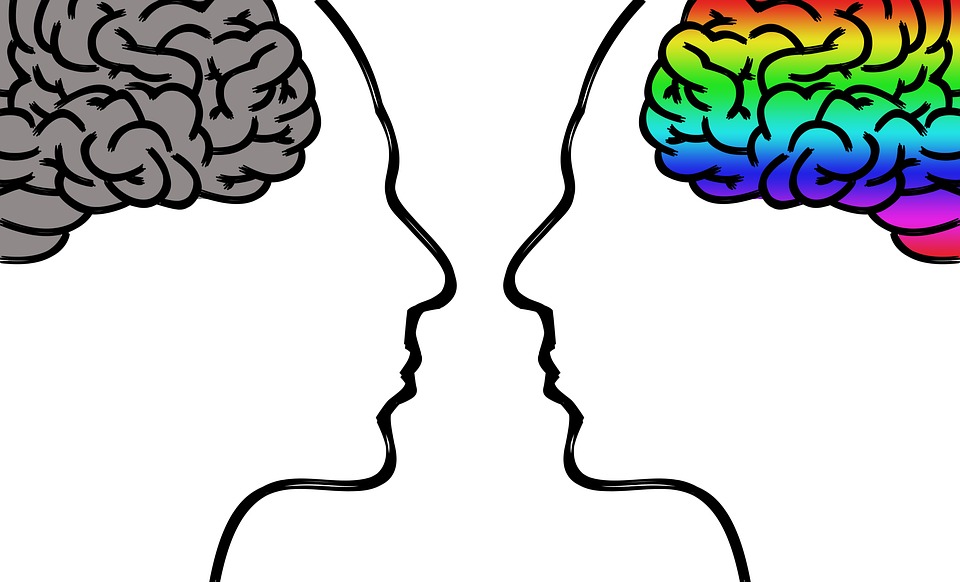by Dr. Phil | Nov 17, 2023 | DBT Therapy
[ad_1]
Social anxiety, also known as social phobia, is a common mental health issue that can significantly impact an individual’s quality of life. It can cause intense fear, anxiety, and self-consciousness in social situations, leading to avoidance of social interactions and activities. If left untreated, social anxiety can lead to isolation, loneliness, and poor self-esteem. However, dialectical behavior therapy (DBT) is a highly effective form of therapy that can help individuals overcome social anxiety and reclaim their lives.
DBT is a type of cognitive-behavioral therapy that was originally developed to treat individuals with borderline personality disorder. However, it has since been shown to be effective in treating a wide range of mental health issues, including social anxiety. DBT focuses on teaching individuals skills to manage their emotions, improve their interpersonal relationships, and cope with stress. It is based on the concept of dialectics, which emphasizes finding balance and acceptance in conflicting thoughts and emotions.
One of the core skills taught in DBT is distress tolerance, which involves learning how to cope with and tolerate distressing situations. Individuals with social anxiety often experience intense discomfort in social settings, and DBT can help them develop strategies to manage their anxiety and remain in social situations without fleeing or avoiding them altogether. This can include deep breathing exercises, grounding techniques, and other mindfulness practices to help individuals stay present and calm in anxiety-provoking situations.
DBT also teaches individuals emotion regulation skills, which are crucial for managing the intense feelings of fear, shame, and self-doubt that often accompany social anxiety. By learning to identify and understand their emotions, individuals can learn to change their emotional responses and reduce their anxiety in social situations. This may involve challenging negative thought patterns, reframing situations in a more positive light, and learning to practice self-compassion and acceptance.
Furthermore, interpersonal effectiveness skills taught in DBT can help individuals build confidence and improve their social interactions. This includes learning effective communication strategies, setting healthy boundaries, and building assertiveness skills to navigate social situations with greater ease and confidence. By developing these skills, individuals with social anxiety can learn to express themselves more confidently, build stronger connections with others, and overcome their fear of social judgment and rejection.
In addition to these core skills, DBT also incorporates mindfulness practices, which can help individuals with social anxiety become more aware of their thoughts and feelings in the present moment. Mindfulness can help individuals stay grounded and focused in social situations, allowing them to respond more effectively to their anxiety and engage more fully in social interactions. By practicing mindfulness, individuals can learn to let go of self-criticism and judgment, and instead cultivate a sense of acceptance and self-awareness that can greatly reduce the impact of social anxiety.
Overall, dialectical behavior therapy offers a comprehensive and evidence-based approach to overcoming social anxiety. By learning distress tolerance, emotion regulation, interpersonal effectiveness, and mindfulness skills, individuals can develop the tools they need to manage their anxiety, improve their social interactions, and reclaim their lives. If you struggle with social anxiety, consider seeking out a therapist who specializes in DBT to help you overcome your fears and build a more fulfilling and connected life. With the right support and guidance, you can learn to thrive in social situations and overcome the grip of social anxiety.
[ad_2]
by Dr. Phil | Nov 15, 2023 | DBT Therapy
[ad_1]
Communication is an essential aspect of human interaction. Whether it’s in our personal relationships, at work, or in social settings, mastering the art of communication is crucial for creating and maintaining healthy connections with others. However, effective communication skills don’t always come naturally to everyone. Fortunately, Dialectical Behavior Therapy (DBT) offers a set of skills that can help individuals improve their communication abilities.
DBT is a type of cognitive-behavioral therapy that was initially developed to help individuals with borderline personality disorder. However, its principles and techniques have been found to be beneficial for anyone looking to enhance their emotional regulation, interpersonal effectiveness, and communication skills.
One of the key components of DBT is learning effective communication strategies. The following are some DBT skills that can help individuals master the art of communication:
1. Mindfulness: DBT encourages individuals to cultivate mindfulness, which involves being fully present in the moment and non-judgmentally aware of their thoughts, feelings, and surroundings. Practicing mindfulness can help individuals become more attuned to their communication patterns and the impact of their words on others.
2. Emotion Regulation: Effective communication requires the ability to regulate one’s emotions and express them in a healthy and constructive manner. DBT teaches individuals how to identify and label their emotions, as well as how to manage intense emotions in the heat of the moment, which can ultimately improve their communication skills.
3. Distress Tolerance: In challenging or emotionally charged situations, being able to tolerate distress is crucial for maintaining effective communication. DBT skills such as self-soothing, distraction, and radical acceptance can assist individuals in remaining calm and composed during difficult conversations.
4. Interpersonal Effectiveness: DBT provides individuals with specific tools for navigating interpersonal interactions. This includes learning how to express their needs and boundaries assertively, as well as how to actively listen and validate the feelings of others. These skills are essential for building and maintaining healthy relationships through effective communication.
By incorporating these DBT skills into their daily lives, individuals can improve their communication abilities and build stronger connections with others. Whether it’s learning to speak assertively, actively listening to others, or managing emotions during difficult conversations, DBT offers practical techniques for enhancing communication skills.
In conclusion, mastering the art of communication is a lifelong endeavor, and DBT skills can provide valuable tools for individuals seeking to improve their ability to communicate effectively with others. By cultivating mindfulness, regulating emotions, tolerating distress, and honing interpersonal effectiveness, individuals can enhance their communication skills and create more fulfilling relationships in all areas of their lives.
[ad_2]

by Dr Suresh | Oct 21, 2023 | DBT Therapy
[ad_1]
Mastering Social Navigations: How DBT Can Help You Maneuver Social Situations with Confidence
Social situations can often be challenging for many individuals. Whether it is attending a party, networking event, or even a casual gathering with friends, navigating these interactions can sometimes cause anxiety and stress. However, through the practice of Dialectical Behavior Therapy (DBT), individuals can learn valuable skills to help them maneuver social situations with confidence.
DBT is a therapeutic approach that was originally developed to treat individuals with borderline personality disorder. However, its practical and adaptable techniques have proven effective in tackling a range of difficulties, including social anxiety and interpersonal difficulties. One of the key foundations of DBT is mindfulness, which involves staying present in the moment and non-judgmentally observing one’s thoughts, feelings, and experiences.
By utilizing mindfulness techniques, individuals can become more aware of their social interactions and the emotions they experience during these situations. This heightened self-awareness allows individuals to better understand their own triggers, reactions, and patterns of behavior, which in turn enables them to modify their responses in social settings.
Another core component of DBT is distress tolerance. Social situations can often bring discomfort, whether it is feeling anxious, embarrassed, or criticized. Distress tolerance skills can help individuals cope with these emotions by developing healthy ways to manage stress and reduce their emotional intensity. In DBT, individuals learn to identify and label their emotions, practice self-soothing techniques, and engage in activities that distract from distressing thoughts or sensations.
In addition to mindfulness and distress tolerance, DBT also emphasizes interpersonal effectiveness. This module is designed to teach individuals skills that enhance their ability to communicate effectively, maintain healthy relationships, and assert their needs and boundaries without damaging their connections with others. By learning assertiveness, active listening, and problem-solving skills, individuals can navigate social situations with confidence and ease.
One of the core concepts in interpersonal effectiveness is the “DEAR MAN” skill, which is an acronym that stands for Describe, Express, Assert, Reinforce, Mindful, Appear confident, and Negotiate. By following this framework, individuals can effectively express their thoughts and feelings, set and maintain boundaries, and negotiate for their needs in a respectful and assertive manner. This skill helps in maintaining relationships and handling conflicts constructively.
DBT also emphasizes the power of validation in social interactions. Validating others’ experiences and emotions can foster connection and understanding, leading to stronger interpersonal relationships. By empathizing with others and acknowledging their thoughts and feelings, individuals can create a safe and supportive environment that encourages open communication and authentic connections.
Mastering social navigations through DBT is a process that requires practice and commitment. As individuals continue to develop mindfulness, distress tolerance, and interpersonal effectiveness skills, they gradually build confidence and become better equipped to handle any social situation that comes their way.
It is important to note that seeking professional guidance and support from a qualified DBT therapist or attending a DBT skills group can significantly enhance the learning and application of these skills. Group settings provide a supportive community where individuals can learn from one another’s experiences, receive feedback, and practice their skills in a safe and structured environment.
In conclusion, mastering social navigations through DBT can empower individuals to maneuver social situations with confidence. By developing mindfulness, distress tolerance, and interpersonal effectiveness skills, individuals can increase their self-awareness, manage uncomfortable emotions, and navigate social interactions with enhanced clarity and effectiveness. Through consistent practice and support, anyone can master social situations and build meaningful, authentic connections with others.
[ad_2]

by Dr Suresh | Sep 12, 2023 | DBT Therapy
[ad_1]
Unlocking Emotional Intelligence: How DBT Techniques Can Help
Emotional Intelligence (EI) plays a critical role in understanding and managing our own emotions, as well as recognizing and empathizing with the emotions of others. It is a skill that can greatly influence our personal and professional relationships and contribute to our overall well-being. While some individuals seem to possess natural emotional intelligence, others may struggle to develop this vital skill. However, with the help of Dialectical Behavior Therapy (DBT) techniques, anyone can unlock their emotional intelligence potential.
Developed by psychologist Marsha M. Linehan, DBT is a therapeutic approach rooted in cognitive-behavioral therapy. Originally designed to treat individuals with borderline personality disorder, DBT has since proven effective in addressing a wide range of emotional dysregulation and interpersonal challenges. One of the core components of DBT is emotion regulation, which directly contributes to the development of emotional intelligence.
DBT techniques focus on improving four essential skills: mindfulness, distress tolerance, emotion regulation, and interpersonal effectiveness. Let’s explore how each of these skills can contribute to unlocking emotional intelligence.
1. Mindfulness: Mindfulness is the practice of being fully present and aware of one’s thoughts, feelings, and bodily sensations without judgment. By cultivating mindfulness, individuals can become more in tune with their own emotions, allowing them to develop a deeper understanding of themselves. This self-awareness is the foundation of emotional intelligence, enabling individuals to recognize their own emotional states and respond to them more adaptively.
2. Distress Tolerance: DBT emphasizes building distress tolerance skills to manage intense emotions effectively. By learning healthy coping mechanisms, individuals can navigate emotional challenges with resilience and composure. The ability to tolerate distressing emotions enables individuals to regulate their reactions, think more clearly, and make better decisions, all contributing to increased emotional intelligence.
3. Emotion Regulation: Emotion regulation skills taught in DBT help individuals to identify, understand, and effectively manage their emotions. Through these techniques, individuals develop the ability to regulate their emotional responses, without being overwhelmed or shutting down. This heightened emotional control allows individuals to respond more thoughtfully and empathetically towards others, ultimately fostering stronger emotional intelligence.
4. Interpersonal Effectiveness: Effective communication and healthy relationships are key components of emotional intelligence. DBT techniques teach individuals how to assert their needs and boundaries while maintaining respect for others. By improving interpersonal skills, individuals can establish more fulfilling connections with others, recognize and respond appropriately to the emotions of others, and foster empathy and understanding.
While DBT techniques offer a valuable framework for unlocking emotional intelligence, it is essential to remember that developing this skill is a lifelong journey. Like any other skill, it requires practice, patience, and dedication. With consistent effort, individuals can progressively enhance their emotional intelligence, leading to improved relationships, increased self-awareness, and a greater sense of well-being.
In conclusion, emotional intelligence is a crucial skill that influences every aspect of our lives. By understanding and utilizing DBT techniques like mindfulness, distress tolerance, emotion regulation, and interpersonal effectiveness, individuals can unlock their emotional intelligence potential. Through increased self-awareness, empathetic understanding, and effective regulation of emotions, individuals can nurture stronger relationships, make more informed decisions, and achieve greater overall satisfaction in their lives. Embrace the journey of unlocking emotional intelligence and watch as it transforms your life for the better.
[ad_2]

by Dr Suresh | Sep 6, 2023 | DBT Therapy
[ad_1]
Achieving harmony in life is a constant struggle for many people. The demands and pressures of daily life can easily throw us off balance, causing stress, anxiety, and dissatisfaction. However, there is a therapeutic approach that can help you build a balanced life and achieve inner harmony – Dialectical Behavior Therapy (DBT).
DBT is a unique form of therapy that combines the principles of cognitive-behavioral therapy (CBT) with elements of mindfulness. It was originally developed by psychologist Marsha Linehan in the 1980s to treat people with borderline personality disorder, but has since been found effective in treating a wide range of mental health issues and promoting overall well-being.
One of the core principles of DBT is understanding and accepting that life is full of contradictions and opposing forces. It teaches us that these opposing forces can exist simultaneously and that finding a balance between them is crucial for achieving inner harmony. DBT helps us to identify and manage these contradictions in a way that reduces emotional distress and helps us to live a more fulfilling life.
The four main components of DBT are skills training, individual therapy, group therapy, and phone coaching. Skills training focuses on teaching individuals various techniques and strategies to improve their ability to cope with emotional stressors, regulate their emotions, communicate effectively, and tolerate distress. These skills include mindfulness, emotion regulation, interpersonal effectiveness, and distress tolerance.
Mindfulness is a significant component of DBT and involves being fully present in the moment, without judgment. By practicing mindfulness, individuals can become more aware of their thoughts, emotions, and bodily sensations, which in turn helps them to gain a deeper understanding of themselves and their triggers. Mindfulness also cultivates a greater sense of acceptance and allows individuals to let go of judgment and self-criticism, enabling them to build a healthier relationship with themselves and their surroundings.
Emotion regulation is another key skill taught in DBT, as it is essential for achieving harmony in life. Emotion regulation involves recognizing and understanding our emotions, identifying the triggers behind them, and finding healthy ways to express and manage them. By learning to regulate our emotions, we can avoid becoming overwhelmed by negative feelings such as anger, sadness, or anxiety, and instead respond in a more balanced and constructive way.
Interpersonal effectiveness is a crucial skill for building harmonious relationships with others. DBT helps individuals to improve their communication skills, assertiveness, and boundaries, enabling them to express their needs and desires in a respectful manner. By learning effective interpersonal skills, individuals can foster healthier and more fulfilling relationships, which contributes to overall well-being.
Distress tolerance is the final component of DBT. It focuses on helping individuals develop healthy coping mechanisms for managing distressing situations and emotions. By learning to tolerate distress, individuals can avoid impulsive or self-destructive behaviors and instead respond in a healthy and constructive manner. Distress tolerance techniques can include activities such as self-soothing, distraction, or focusing on the positives in life.
By incorporating these DBT skills into your daily life, you can build a balanced and harmonious existence. DBT teaches that achieving harmony is an ongoing process and that setbacks are a natural part of life. However, with practice and perseverance, you can develop the tools and mindset necessary to navigate life’s challenges and build a fulfilling life.
In conclusion, achieving harmony in life is possible with the help of Dialectical Behavior Therapy. By practicing mindfulness, regulating emotions, improving interpersonal skills, and developing healthy coping mechanisms, individuals can build a balanced and fulfilling life. Remember that achieving harmony is an ongoing process, but with the right tools and mindset, it is within your reach.
[ad_2]



